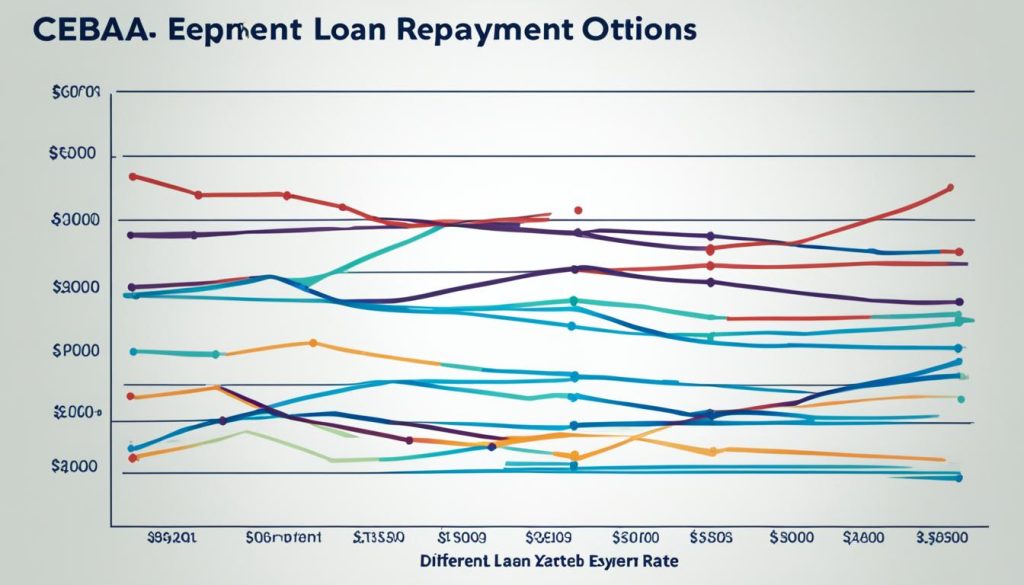Understanding CEBA Loan Repayment Extension Options for Financial Flexibility
The CEBA loan repayment extension helps small businesses hit by the COVID-19 pandemic. It’s part of the government’s effort to aid businesses during tough times. This move shows the government remains committed to supporting businesses beyond the initial crisis response.
The original deadline for CEBA loan repayment was January 18, 2024, to keep loan forgiveness. But, the government extended this deadline to March 28, 2024. This is because officials understand companies are still facing financial challenges.
This extra time also means loans will start to accumulate interest, including the part that might be forgiven. For businesses that didn’t get this extension, there’s still a chance. Their CEBA loans will change into term loans, which require only monthly interest payments. This option is available until December 31, 2026, giving businesses more time to recover.
Key Takeaways
- CEBA loan provides critical support with an extended repayment timeline.
- Repay by January 18, 2024, to benefit from loan forgiveness.
- A special refinancing extension is available until March 28, 2024.
- Establish a 5% interest rate on outstanding loans during the extension.
- For those without the extension, the CEBA becomes a term loan until December 31, 2026.
These options help businesses on the road to recovery with less financial stress. The government stands with the business community during these difficult times.
Exploring the CEBA Loan Repayment Extension Timeline
The CEBA loan extension has helped many businesses face challenges during the pandemic. Knowing about the extended period and the refinancing options is vital for good financial planning.
Initial Deadline and Qualifications for Forgiveness
The repayment deadline for CEBA loan forgiveness moved to January 18, 2024, from late 2023. Businesses must keep their accounts in good standing and meet this new deadline. This is to achieve loan forgiveness.
Special Extension for Refinancing Applications
Companies making efforts to refinance their loans with the original CEBA lenders have a special extension. They get more time, until March 28, 2024, to prepare. This also keeps them eligible for loan forgiveness.

Interest Rates During the Extension Period
After January 18, 2024, a 5% annual interest rate applies to any money still owed on your CEBA loan. This means more financial pressure. It’s crucial for businesses to plan carefully to handle the loan extension well.
CEBA Loan Forgiveness Conditions and Eligibility
Many small businesses find it key to grasp CEBA loan forgiveness terms. This helps in dealing with rules on who qualifies for the loans and how much can be forgiven. It really matters for their plans and financial duties.
Understanding Forgivable Portions
The CEBA program is designed to partly forgive loans. This is to make sure businesses meet their financial responsibilities on time. If a loan was used right under program directions, part of it might not need to be paid back.
For loans up to $40,000, 25% can be forgiven. For loans over that, another 50% on the extra amount can be forgiven, up to a total of $60,000. This can mean a lot in saving money for businesses.

Consequences of Missing the Repayment Deadline
If a business doesn’t pay back on time, the forgiven part might have to be paid. The loan then changes, with a new interest rate and date to finish payments. This means businesses must act quickly to protect their chances of reducing their loan payments.
It’s crucial for businesses to keep checking their loan terms. They should also talk to financial experts. This will help them follow the rules properly. It makes things easier now and in the future when it comes to money.
Critical Strategies for Managing Your CEBA Loan Repayment Extension
With the CEBA loan repayment extension, strategic financial planning is key for success and growth. Using government aid and managing COVID-19 relief efforts well can guide businesses through loan challenges. Here, we’ll look at key strategies for firms to manage their financial obligations efficiently.

First, carefully look at your savings and credit lines. This will help you understand your financial condition. It will also guide you in deciding how to pay back your loan. You need to know how much flexibility you have with your money and what you can use for your loan.
- Analyze available financial resources to determine how they can be optimally used to reduce debt burden.
- Consider refinancing options with credit unions or banks that may offer more favorable terms in light of recent economic changes.
Moreover, searching for new ways to fund is crucial in strategic financial planning. This could mean getting help from venture capitalists, friends, or family. Or, using crowdfunding platforms to secure additional funds for managing loan repayment.
“External funding can provide the necessary leverage to not only manage but also potentially accelerate the repayment of loans, easing financial pressure.”
Finally, getting advice from financial experts and reliable institutions can be very helpful. They can give specific advice that meets your business’s needs. This enhances the use of government aid.
- Engage with financial experts to understand the nuances of your loan agreement and explore viable management strategies.
- Leverage financial advisory services to align business goals with repayment capacities.
By following these strategies, businesses can more effectively handle loan repayments. Thus, they can secure a strong financial future despite tough economic times.
CEBA Loan Repayment Extension: How to Secure Your Business’s Future
Businesses now face the CEBA loan repayment extension. To thrive, they must plan wisely. This includes looking at how to refinance, checking financial health, and understanding legal stuff.
Navigating Refinancing Options
To get on better financial ground, exploring refinancing is vital. Banks, credit unions, and the Business Development Bank of Canada offer help. They give different loan rates and terms. This eases the financial burden and sets your business on a path for growth.
Legal Considerations and Understanding Contracts
Knowing the legal side of contracts protects your business from surprises. Get a lawyer to look at your loan agreements, especially for refinancing. They will explain what the interest rates and terms really mean.
Strong legal foundations empower businesses to negotiate better terms and avoid clauses detrimental to their financial well-being.
Assessing Financial Health and Preparing for Repayment
Keep tabs on your finances, looking at both present and future money. When getting ready to pay back your loan, review your finances. It’s essential to have a solid plan with real expectations and risk checks.
- Analysis of financial statements and cash flow statements
- Monitoring key performance indicators relevant to the business sector
- Implementing cost control mechanisms to optimize resource usage
Planning ahead for repayment helps businesses move through this phase smoothly. It lessens the financial pressure and keeps the business on track.

Conclusion
The CEBA loan repayment extension is a welcomed support in today’s changing economy. It gives businesses more time to plan financially and stay strong. Now, the deadline is pushed to January 18, 2024, and refinancing is easier.
This extra time is crucial for companies wanting to qualify for loan forgiveness. By planning well and seeking refinancing options, they can manage their payments better. The government’s CEBA offers help right when companies need it.
Using the CEBA loan wisely is a step toward a stronger future for any business. Even with future challenges, smart loan management and financial planning are vital. They lead to paying back loans without struggles and help the economy bounce back after the pandemic.



